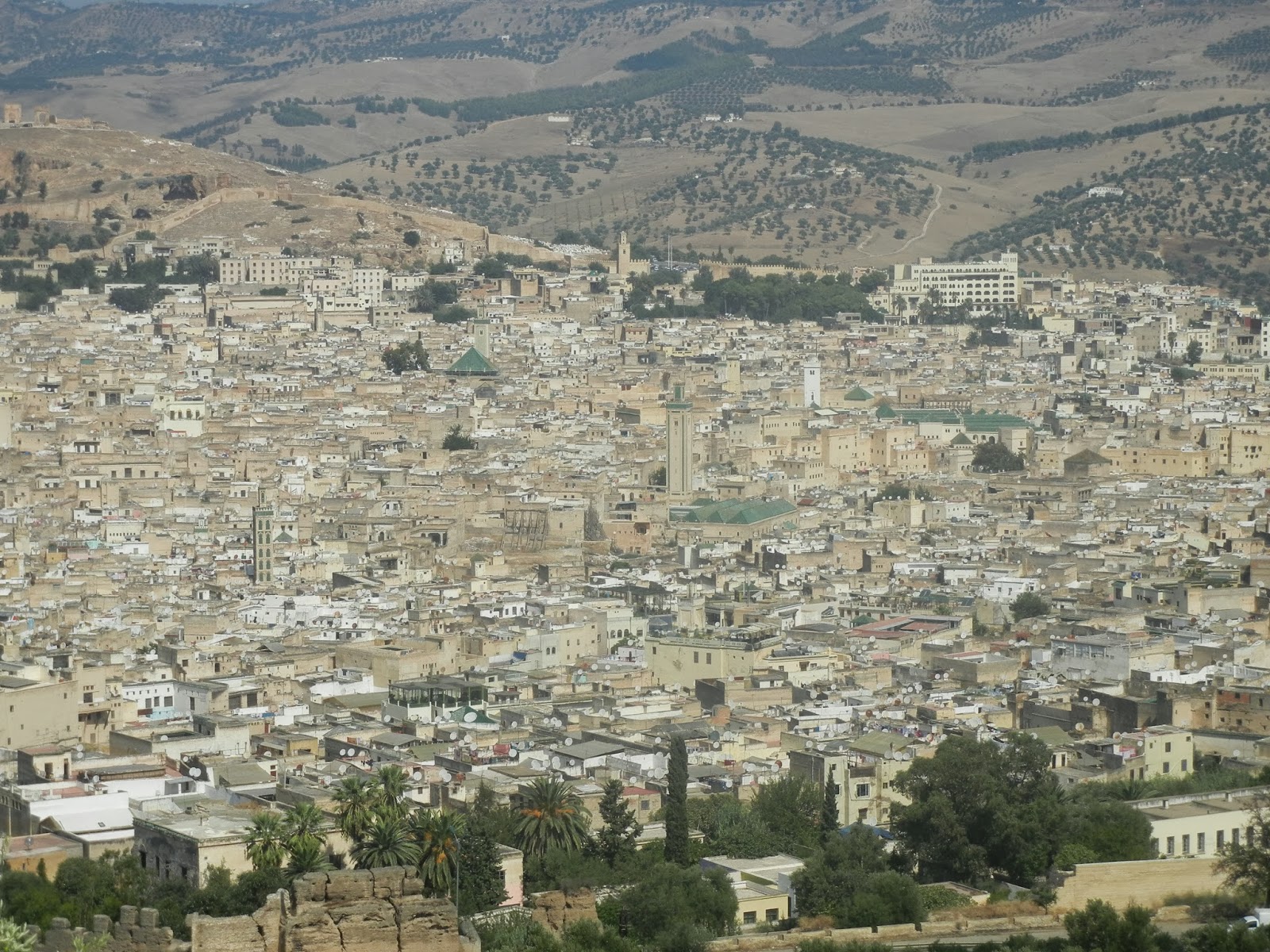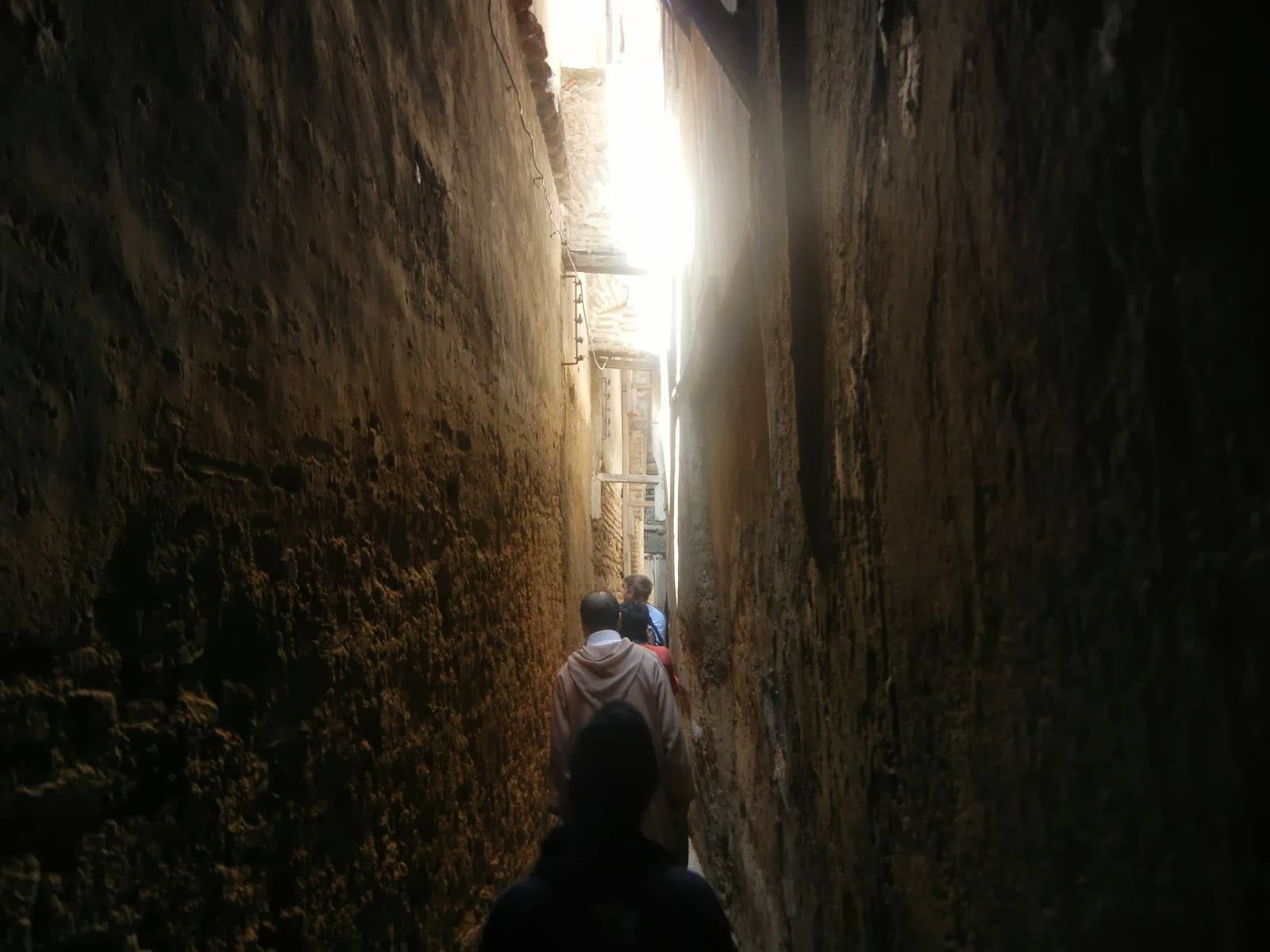Note: The way that I am spelling the names of my family
members is likely incorrect. I am just spelling them as I pronounce them…which
is probably incorrect as well.
Mama Fatima, with a huge grin
crawling across her face took my hand and pulled me in for a kiss on each
cheek, ignoring the drops of sweat that rolled the length of my face. Mehid
extended his hand and said “Hello.” Niema also offered her hand and I took it
softly, nervously; she didn’t say anything. Immediately, they ignored my
protests and took two of my bags; Mama Fatima and Mehid shared the weight of my
duffle while Niema carried my daypack, which probably matched her in weight.
From time to time on the walk, Niema would crunch her face up towards me, pump
her arms, and take five, rapid breaths, signifying the workoutshe was getting
from carrying it. She would then let her face soften and her mouth form a smile
to let me know that she didn’t mind. Later, I would meet Hameda, my other
brother, and my Baba Saiid. The five of them make up the Ben Mekhish family and
they have been kind enough to take me into their home for the next couple
months.
Mama Fatima radiates kindness. Like
many Moroccan women in the Medina, she spends her days around the house
cooking, cleaning, and caring for the children. She is always looking out for
me, making sure that I have eaten enough and that I am comfortable. She doesn’t
let me say no to what she offers: food, sandals, a spot on the couch, more food,
anything. For my bedroom, she has given me the salon of the house, by far the biggest
and most beautiful room and has given me my own key so that I feel absolutely
secure. She is wonderful and I’m very happy to call her Mama.
Baba Saiid walks with a cane and
laughs like Santa Claus. He has a friendly face and his teeth are beginning to
rot and he speaks with a slight slur and holds onto my arm while we walk
together through the souq (market). As we stroll, he points to things and says
the Darija word for it, which I mispronounce back to him and he repeats it, slower
the second time, even breaking it into syllables for me if I am really
struggling. Once I get it, he asks “American?” and we repeat the process, I the
teacher, him the student. This is how Baba Saiid and I pass the time, sharing
in the struggle and frustration that is learning language.
Mehid and Hameda are my age and
treat me like a mute brother. They shake my hand and give me high-fives, they
introduce me to their friends in the souq, and they always ensure that the
street vendors aren’t ripping me off. Mehid took me to get a cell phone and a
hair cut yesterday. Hameda and I sit in the living room and bob our heads to 50
Cent (he’s a big fan even though he has no idea what is being said). When you
don’t share language, you have to find other things to experience together:
sights, smells, sounds, tastes, and, when those fail, simple silence often
works too.
My little sister Niema is my best
friend in the family. She is twelve years old and is learning English in
school. Through a combination of her very limited English, my very limited
Darija, and pointing, we can often find a way to just barely, sort of, kind of
communicate. We sit and listen to music (she plays me a song and then I play
her one), walk through the Souk, and look at her English schoolbook together. She
goes to school four days a week for a few hours a day and spends the rest of
her time helping her mother around the house.
It’s strange to see; her older
brothers hanging around the souk, making catcalls and giggling like school boys
when women walk by and Niema at home, 9 years younger, helping her mother bake
bread and clean. That’s not to say that women in Morocco are utterly
mistreated. Compared with much of the Middle East and North Africa, Morocco is
quite progressive and women have more rights today than any day in the past. I
don’t think that Mama Fatima and women like her are necessarily forced into
this domestic lifestyle; however, they are strongly encouraged to go there by
culture, family, and religion. Will this change by the time Niema is a young
woman? It’s tough to stay. But my hope is that at least she will get some more
choice than Mama Fatima did and that the generation after her will get even
more and like the wheel of a bicycle, Morocco will roll forward.
My short time with the Ben Mekhish
family has been a lot of things: exciting, nerve racking, fun, emotional. It’s
strange to know that my time with them will end; that in a couple months, I will
leave their house and their lifestyle and return to my own: showers everyday, a
toilet that flushes, utensils, my own cup of water with meals. It’s strange to
know that the computer I’m typing on now likely costs approximately the same
amount as the family’s yearly income and that the clothes I brought with me may
well exceed the clothes each member owns. Yet strangest of all is knowing that
this isn’t poverty. Compared to many others in Morocco and around the world,
the Ben Mekhish family lives in comfort and it’s the incredible privilege I was
born with that makes me see otherwise.
So the question becomes: how does
one react to privilege? Should one feel guilty and try to rid them self of it?
Or just accept their luck and enjoy it while it lasts? Can one truly strike a
balance between maintaining the privileges they were blessed with while using
those privileges to make real, beneficial change in the lives of those less
fortunate? I can’t say that I know the answers to these questions now; however,
hopefully by the end of my stay I can begin to.
Baba Saiid holding my right arm for
support and Niema clutching my left hand while we parade through the skinny
streets of the souk. We walk at a slow pace for Baba, whose legs struggle with
the weight of his personality. We get looks as we walk, giggles too and we
smile and point and nod at everything around us, defining the world in our own
strange and silent language. Until next time.
-Granger Tripp
 |
| My bedroom (the salon) |
 |
| My house is the second on the left. |
 |
| Niema and I (notice the haircut!) |
|
|
|
|
|
|


















